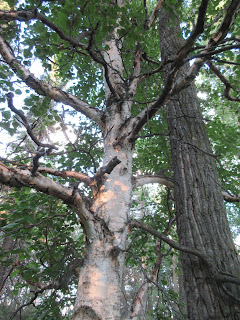Friday, June 13, 2025
Polar Borealis story
Thursday, May 8, 2025
Cradle To Stage 2025
My script, 'Misfortune', based on the Sicilian folktale by Agatuzza Messia, is going to be included in the Cradle to Stage reading series at Edmonton's Walterdale theatre. It is the story of an evil fate faced with wit, kindness, and a bit of magic. It will be one of three scripts presented on Tuesday, May 20 and Saturday, May 24, directed by Donna Call and read by a team of talented volunteers. Walterdale also sponsored dramaturgy sessions with Beth Graham to help improve my script before sending it to the readers. I have been thoroughly impressed with everyone involved and am confident the evening will be well worth the low $10 ticket price. Tickets are available now through the Walterdale theatre website: https://www.walterdaletheatre.com/65th-season/from-cradle-to-stage-new-play-festival/
Thursday, March 31, 2022
Polar Starlight #5
My poems 'A Vision of the Future' and 'Grassgreen' are included in the new issue of Polar Starlight, a spinoff of Polar Borealis focusing just on poetry. The issue can be downloaded for free here POLAR-STARLIGHT-5-March-2022.pdf , and more information about both magazines is available at polarborealis.ca
Friday, November 26, 2021
Home for the Howlidays
The Home for the Howlidays anthology from Tyche books has been released, which includes my story "Apple Night." The links to order print or ebooks can be found here: https://tychebooks.com/howlidays . The theme is a combination of winter holidays and canines, perfect for reading on a long winter's night. I don't have my copy yet but I am looking forward to reading the other stories, especially the one by local author E.C. Bell, who gave some hints about the story at her booklaunch for the latest in her Marie Jenner paranormal mystery series.
Thursday, August 12, 2021
The Day Auntie Boiled Over
The day Auntie boiled over, there was a wind blowing.
The sky was smoky and the sun was orange,
And her steam rose up like a genie,
Sardonic and terrible, and it looked about itself
And then breathed out all her frustration and sorrow
And the wind carried it all the way to the palace
And the laughter of the cruel ones died on their lips
And the cups fell from their hands
And the silence that followed was like the ebb of a tsunami.
It was like the moment of waking from a nightmare.
Monday, June 28, 2021
Aurora
Monday, June 21, 2021
We Must Write Poems About Trees
We must write poems about trees, not just take pictures,
because a picture is always too far, too near, too simple.
If it shows the sweep of branches it misses the texture of bark and leaf.
A tree will not confine itself to one perspective. It is like history
or dreams, or anything we try to grasp like the blind ones
with the elephant: anything too big and too intricate and too sacred.
Anything, really.





